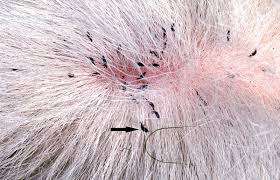Can dogs eat cheese?

Cheese has a great deal of dietary advantages that can offer a healthy benefit to your pet. Cheese is made up of protein, calcium, vitamin B12, vitamin A, zinc, and phosphorus. These are advantageous vitamins that are vital for your canine's health.
Cheese likewise includes fatty and salty elements, which can give some advantages to your dog's health. However, Too much fat and salt can trigger health problems.
The kind of cheese that you would feed your dog is likewise crucial to understand. Any type of aged cheeses like Parmesan, cheddar, and Swiss have extremely small amounts of lactose in them. Mozzarella cheese includes a great deal of fat, so if you ever decide to feed some to your dog, make certain it's only in doggy treats sizes. Cheese can likewise be an excellent way to hide tablets for your pet dogs who need medication.
Is cheese bad for dogs?
While it is true that there are many benefits for dogs that eat cheese in small portions, there are also health risks that are associated with cheese.
Not all pets can deal with a yummy reward like cheese. A lot of dogs have a condition that some of us humans also have known as being lactose intolerant. Lactose intolerant suggests they can not manage dairy items. While the majority of cheese consists of less lactose than many other dairy items such as whole milk. Dogs can still have unfavorable reactions to cheese if they are extremely lactose intolerant.
This is why you need to speak with your veterinarian prior to offering your pet dog cheese.Can my dog eat any type of cheese?

Not all types of cheese are the same. Some types of cheese are more dangerous than some. Two types of cheese that are dangerous to dogs are blue cheese and Roquefort. These two types of cheese should never be fed to your dog under any circumstances as they have very high fat content. These types of cheese also pose life threatening implications if they are consumed after turning ripe. If these types of cheese are allowed to be eaten by a dog after ripening, you should see a vet immediately as these types of cheese produce something known as roquefortine which can be deadly to dogs.
These dogs should not eat cheese
- Obese canines
Cheese has a high fat content and should be kept away from dogs who are overweight. Better meal or treat options for an obese dog can consist of ham, tuna and chicken.
- Dogs that are Lactose intolerant
- Dogs with upset stomaches
- Dogs with kidney issues
Dogs that have an allergic reaction or intolerance to dairy products should not consume cheese at all.
If your canine has a hard time when they consume anything that isn't a part of their normal diet, it would be wise to not let give any cheese as it might cause illness or diarrhea.
Some cheeses are known to have a high salt content therefore they are not a good choice for dogs with any type of kidney illness.
Using cheese to train dogs
You will find that most dogs find cheese alluring. That makes it a perfect choice as a reward when training your family pet. A reward is one where your actions inform your canine you are ever so happy they have actually done what you asked of them. Be sure to only use cheese sparingly. If your dog is having a hard time with recall, but somehow finds cheese delicious, treating the, to small pieces of cheese will help them to understand that listening and doing is a good thing.





